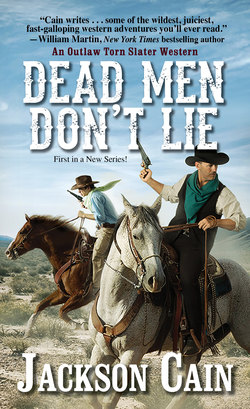Читать книгу Dead Men Don't Lie - Jackson Cain - Страница 26
На сайте Литреса книга снята с продажи.
ОглавлениеChapter 15
On and on Richard and Mateo walked. By now physical training was in full swing, and over six thousand soldiers were drilling. Not on the sidelines though. There, the army’s disciplinary problems—men who failed to follow the army’s draconian orders—suffered. Some were hung by the wrists, even by the thumbs from a seven-foot-high cross-pole. Four were spread-eagled on caisson wheels. Several more were spread-eagled upside down.
The sun beat down on them like hell’s furnace itself.
For a long time Richard and Mateo walked in silence.
“Why did you join the rurales?” Richard finally asked Mateo. “There have to be easier ways to earn a living.”
“What do you know about Díaz and the Señorita?”
“That they’re fiends from hell who cloak themselves in human flesh.”
“Es verdad. They also killed everyone in my family.”
Richard stopped walking and studied Mateo, silent.
“My father was a Sinaloan cavalry officer,” Mateo continued. “I grew up on their military bases, and, believe me, what you see here is God’s Peaceable Kingdom compared to that hell on earth.”
“What made you come here?”
Mateo looked away. The story came out of him slowly, haltingly:
“I had an older brother, named Carlos, who was not quite right in the head, but all eighteen-year-olds are conscripted into the Sinaloan Army. He was no exception. He hated it and got drunk as thoroughly and frequently as he could. He was hilarious too—mucho cómico. A great comic, he was full of wisecracks and a natural mimic. He would have the entire barracks rolling around on the floor, clutching their bellies. He was especially uproarious when he ridiculed the Lady Dolorosa, her stupid stepson, even her terrified lovers. He would act out the parts, doing frightening imitations of each of them. In one routine he pretended he was summoned to her bed. He acted out all the lurid things they said and did to each other, twisting his face into different masks of horror and ecstasy while delivering the appropriate punch lines.
“He even did skits of her torturing loved ones in the Inquisitor’s dungeon and assisting the High Priest in a human sacrifice at the summit of the temple-pyramid. He ridiculed the Señorita’s sadism in the most hilarious ways imaginable.
“My brother was a clown but he was also a fool. He had no sense. His fellow soldiers loved his routines. But one was an informant and told the Señorita of my brother’s mockery of her would-be Aztec priests, and she turned him over to her Inquisitors. She summoned several of his fellow soldados into her throne room, and she made him do his routine. My brother was brillante, funny beyond all understanding, beyond all restraint, and he held nothing back. She laughed the whole time. Soon they were all laughing.
“Afterward, wiping tears of hilarity from her eyes, she said to us: ‘You think that was funny? Oh, that’s a hand I can call and raise. I’m going to give young Carlos here comedy lessons that will have him screaming into the night. I’m sending him to our Inquisitor and telling him to spend an excruciating amount of time teaching Carlos the meaning of real . . . comedy. Then I’m sending him to the Stone. Your whole regiment will attend that extravaganza. I shall be there myself. I will laugh at him just as you all laughed at me. Anyone I spot not laughing will take follow-up comedy courses on the Rack and at the Stone.’
“The Señorita feared familial retaliation after such extravaganzas, however, so after she’d killed one of her citizens, she routinely killed all that person’s family members. She left no one behind who might seek revenge on her. So she immediately killed all my blood relatives.”
Mateo stared at Richard a long time, silent.
“How did you escape capture?” Richard finally asked Mateo.
“My family raised horses, and I grew up breaking them on a rancho with an uncle in Sinaloa. We then sold them to the military. I was adopted, and the state of Sinaloa had few official records on me, so the Señorita’s secret police were slow to learn of my existence and discovered too late that Carlos was my brother. One night after they murdered everyone, my uncle gave me two horses and provisions, and I fled for Sonora. I had information to trade on the Sinaloa military, that Carlos had imparted to me—tactics, strategy, strengths, weakness—and I was motivated to fight against the Señorita and Díaz. The state of Sonora gave me citizenship and accepted me into officers’ school at age sixteen. So, sí, I understand why many people—you included—are critical of our discipline here and of our recruitment methods. I agree, at times, we are overly harsh. But Madre Méjico is not Norteamérica, where life is gentle and fair and just. This is Díaz’s and the Señorita’s Méjico, where people are branded, shackled, jailed, enslaved, even castrated, and ruled by the whip. I have experienced their Méjico on my bones and blood. We are at war with Sinaloa and Chihuahua both and must fight them with everything at our disposal.”
“You want to destroy them for what they did to your family?”
“For that—and for much, much more. Still, while we need discipline, we never want to be like them. We must not be like them.”
Richard stared at Mateo, silent.
“Come with me to our Intelligence Center,” Mateo finally said, giving Richard a forced smile, “and you will learn what else Sinaloa does to its subjects. It isn’t just to me.”
